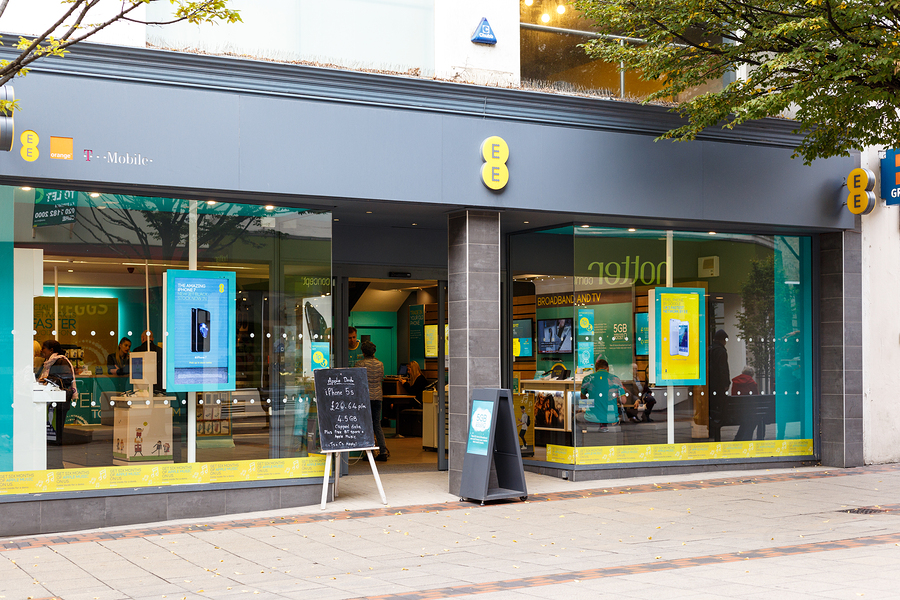Multitasking Britons spend half their lives satisfying media craving
Ofcom's annual Communications Market Report reveals that we now spend 45 per cent of our day using digital media and technology, and are getting better at multitasking between them too.

The average Briton spends nearly half their day using digital media and communication tools, often juggling several at the same time, a new Ofcom study has revealed.
According to the telecoms watchdog, we spend an average of seven hours and five minutes every day consuming media or 45 per cent of our waking hours. That includes listening to radio, watching TV, surfing the web and communicating through smartphones and other digital devices.
However, the actually amount consumed is as much as nine hours and 32 minutes' worth, with more and more Britons juggling several different media at once to satisfy their needs.
Ofcom says around a fifth of our media time is now spent multitasking. Unsurprisingly it's the 16 to 24 age group that is leading the way, squeezing the same nine and a half hours of media into just six and a half hours every day.
However, the gap between the generations is narrowing, with the report revealing that the biggest rise in internet use was being seen among over 55s. For the first time more than half have broadband at home, and a third are sending and reading emails every day.
"Younger people have shown the biggest changes in how we use media particularly using different media at the same time," said Peter Phillips, Ofcom partner for strategy and market development.
"But the divide between younger and older people's use of technology is starting to narrow as more older people are getting online and finding that things like email are very important to them."
Get the ITPro daily newsletter
Sign up today and you will receive a free copy of our Future Focus 2025 report - the leading guidance on AI, cybersecurity and other IT challenges as per 700+ senior executives
It's not just older generations that are seeing a shift in priorities, either, and in some cases the changes have been surprising. For instance, fully half of all adults surveyed said television would be the one thing they'd miss most if it was taken away from them an increase from 44 per cent five years ago. More predictably, the internet has nearly doubled as the most loved form of media, up from 8 to 15 per cent over the five years, while mobile phones are also up slightly to 11 per cent.
However, one form of traditional media that has suffered is the hi-fi, with just two per cent of us naming our Hi-Fi equipment or CD player as our most prized technological possession down from 13 per cent in 2005.
The rise of catch-up TV services and time-shifted viewing through digital video recorders has contributed greatly to television's stronger-than-ever status as Britain's favourite form of media. "Increasingly, mobile devices especially smartphones are used for multimedia, but live evening TV still remains the main entertainment event of the day," Phillips said.
In terms of communications, smartphone sales are the key driver of the mobile media consumption industry, with Ofcom revealing that the average user spends around six and a half hours on the social networking site Facebook a month far more than any other website.
But despite our increasing demand for media on the move, the good news is that for the fifth year running, we're spending less than ever satisfying it.
"Consumers are using communications services more phone calls, texting and the internet," Philips revealed. "Yet they are paying less despite getting more, partly through buying in bundles."
The Ofcom Communications Market Report 2010 involved a survey of more than 1,000 UK consumers aged 16 and upwards.
-
 Cleo attack victim list grows as Hertz confirms customer data stolen
Cleo attack victim list grows as Hertz confirms customer data stolenNews Hertz has confirmed it suffered a data breach as a result of the Cleo zero-day vulnerability in late 2024, with the car rental giant warning that customer data was stolen.
By Ross Kelly
-
 Lateral moves in tech: Why leaders should support employee mobility
Lateral moves in tech: Why leaders should support employee mobilityIn-depth Encouraging staff to switch roles can have long-term benefits for skills in the tech sector
By Keri Allan
-
 New Ofcom guidelines show it’s getting tougher on big tech
New Ofcom guidelines show it’s getting tougher on big techNews New Ofcom guidance outlining its plans for the Online Safety Act show the regulator is toughening up on big tech.
By Emma Woollacott
-
 Ofcom’s draft guidelines on illegal online content set stringent rules for big tech
Ofcom’s draft guidelines on illegal online content set stringent rules for big techNews The codes of practice gives an insight into what the Online Safety Act will mean in practice
By Ross Kelly
-
 UK gov urged to ease "tremendous" and 'unfair' costs placed on mobile network operators
UK gov urged to ease "tremendous" and 'unfair' costs placed on mobile network operatorsNews Annual licence fees, Huawei removal costs, and social media network usage were all highlighted as detrimental to telco success
By Rory Bathgate
-
 UK regulator to investigate Amazon, Microsoft, Google cloud services competition
UK regulator to investigate Amazon, Microsoft, Google cloud services competitionNews The regulator is hoping to publish a final report, including its concerns or proposed recommendations, within 12 months
By Zach Marzouk
-
 We're addicted to our phones, according to Ofcom
We're addicted to our phones, according to OfcomNews Although always being connected means flexible working, some think it's having a negative impact on relationships
By Clare Hopping
-
 Ofcom reveals automatic compensation for ripped-off broadband customers
Ofcom reveals automatic compensation for ripped-off broadband customersNews £142 million will be automatically paid out to customers receiving a delayed service
By Clare Hopping
-
 Three fined £1.9m for 999 call flaw
Three fined £1.9m for 999 call flawNews Ofcom investigation reveals emergency calls were routed through a single data centre
By Dale Walker
-
 Ofcom fines EE £2.7m for overcharging 40,000 customers
Ofcom fines EE £2.7m for overcharging 40,000 customersNews Customers dialling 150 number abroad were overcharged £245,700
By Joe Curtis